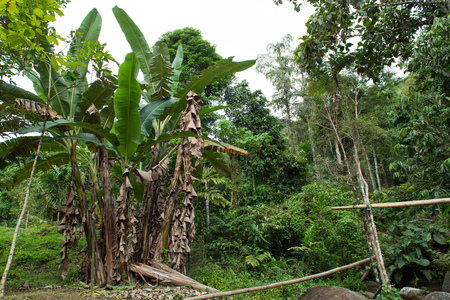Want to know how to save nature? Ask Indigenous scientists.
Nature conservation needs a transformation, according to a new book by environmental scientist Jessica Hernandez.
By Sarah Sax Jan 9, 2022, 8:00am EST

Victor Manuel Hernandez believes he wouldn’t be alive today if it weren’t for a banana tree. As a 14-year-old resistance fighter during the civil war in 1970s El Salvador, he hid beneath the tree’s lush, green fronds when the military attacked his encampment. He’d been shot and a bomb fell directly overhead. But as he recalls, the bomb landed in the leaves of the banana tree, which he believes prevented it from igniting — shielding him from death.
After the attack ended, he mustered the strength to break off a branch from the tree, which he used as a crutch to walk into neighboring Guatemala to find help. “Nature not only protected me,” he recounts in Fresh Banana Leaves: Healing Indigenous Landscapes Through Indigenous Science, a new book written by his daughter Jessica Hernandez, a Maya Ch’orti and Binnizá-Zapotec Indigenous environmental scientist. “It saved my life.”
“Nature protects us as long as we protect nature,” writes Hernandez, who is now a 31-year-old postdoctoral research fellow at the University of Washington. “Ancestral knowledge has been sustained in our communities,” she added in an interview. “It’s a valid form of knowledge that isn’t necessarily validated through the Western ways, like publications and books.” This kind of knowledge forms the basis of Indigenous science, Hernandez says, that is crucial to caring for the Earth.
Indigenous peoples and local communities steward far more of the planet than protected areas like national parks, and around 80 percent of the diversity of species known to be living on Earth are found on lands owned or managed by these groups. That’s despite centuries of genocide, racism, and what Hernandez and other academics and activists refer to as settler colonialism — the intentional displacement and erasure of Indigenous peoples by outsiders.
More:
https://www.vox.com/down-to-earth/22849782/nature-conservation-indigenous-science-jessica-hernandez
(My emphasis)

